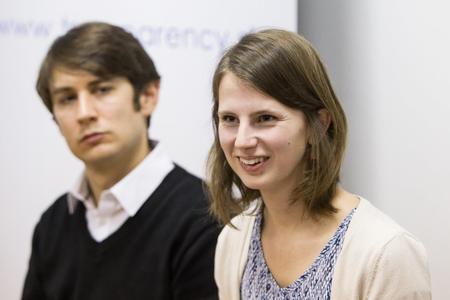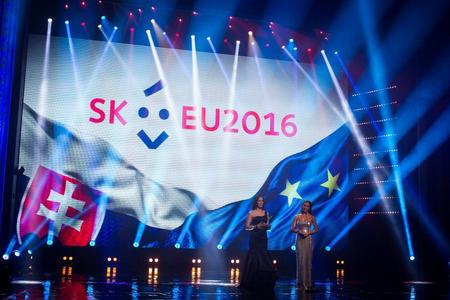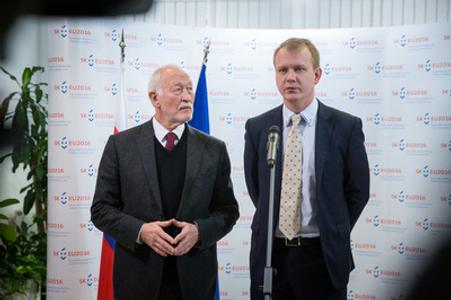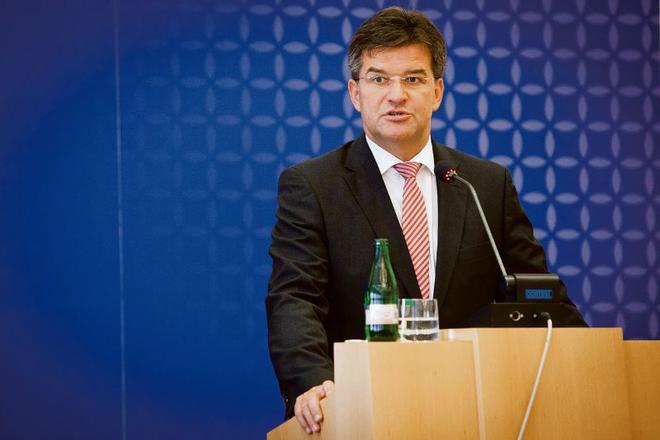The key questions that, if answered, could shed more light on the case, concern who the competitors of Evka in the public procurement tender were and why the agency with alleged links to Smer was selected from among the three companies that participated in the competition.
However, the many documents that the ministry provided to MPs from the parliamentary Foreign Affairs Committee, which they requested during their inquiry at the ministry, answer none of those question.
“It is the responsibility of Minister [Miroslav] Lajčák that he decided to be part of one group with Minister [Robert] Kaliňák rather than with Minister [Lucia] Žitňanská,” MP Miroslav Beblavý who reported to the media about the documents that the ministry provided to the parliamentary committee, wrote in his blog.
Interior Minister Robert Kaliňák has been facing allegations of involvement with businessman Ladislav Bašternák, who is facing accusations of VAT fraud.

The MPs decided to check on the ministry following the allegations of non-transparent procurement and an overpriced order for the Evka event agency, which pertain to the event the ministry organised to launch the logo of Slovakia’s EU Council Presidency.
The allegations were first raised by former ministry staffer Zuzana Hlávková, who together with Transparency International Slovensko (TIS), described in a blog post how she started at the ministry in July 2015 as an expert for cultural presentation for Slovakia’s presidency. She describes the atmosphere upon her arrival to the small team of six people as “open and free” – until the new media advisor, Zuzana Ťapáková, became active at the ministry. Hlávková writes that suddenly her department was under pressure to change the original projects, including a significant increase in costs.
Hlávková also suggested that after Ťapáková’s arrival, the ministry procured the services of the Evka agency, which is reportedly linked with Smer and designed the party's main campaign event prior to the March 2016 elections, around the same time the Slovak presidency event was taking place.

High price
Allegations that the launch of the logo was an overpriced event surfaced shortly after the event took place in February 2016. The price was originally reported at €156,000 with VAT, which is what the ministry paid to the Evka agency. Hlávková, however, later alleged that some of the costs of the event were not included in that price and the final bill could be up to €300,000. The documents that Beblavý has at his disposal reveal the ministry paid €247,000 for the gala evening. That includes, apart from the €156,000 for Evka, also the amount for renting the Slovak National Theatre building of €41,000, payments for the artists of €46,000 and catering of around €5,000, the Sme daily reported, citing Beblavý.
The documents also show that the €156,000 for Evka also included €20,000 for the organisation of the event paid to the agency management, and €14,400 for the short laser show that was part of the event.
The Sme daily pointed out that when they previously requested a document in which the bill for Evka would be broken down in such a way, the ministry claimed they did not have such a document, and that “the items are not individually stated in the contract, since the obligation of the provider (Evka) was the complex realisation of the event”.
The individual items are, however, priced in the documents that the MPs received after their inspection.
Documents
MP Beblavý now says he has lost his trust in Lajčák as minister. In his text, he goes into details about what the documents that the ministry provided contained and what was lacking in them. As part of their inspection, the MPs also requested to talk to the ministry staff. but the employees did not agree to talk to the MPs.
The ministry provided 200 pages worth of documentation to the committee by the end of last week and claimed they contained everything that the law allows and obliges them to share.

Beblavý claims the ministry failed to provide a document that would explain how the ministry came up with the price of the order.
“Such a document must exist, MPs requested it and the minister promised to provide it,” Beblavý wrote, adding that instead the ministry provided an “irrelevant document” in which it now justifies in retrospect why the process functioned properly.
The ministry also did not share with the MPs the records documenting the selection of the supplier, the approval process and reasoning as to why Evka was selected from among the three offers. Beblavý points to the law that obliges the ministry to have a document in which the offers would be compared and the ensuing decision explained. Instead, the ministry provided many pages of documents containing records of how the individual levels at the ministry approved the process and issued invoices, all from after Evka was selected.
“By law, this information should be available to every citizen, not just MPs,” Beblavý noted.
Subjective and selective, ministry says
The ministry does not agree with Beblavý’s assessment of the materials they provided, calling it a “subjective and selective interpretation”.
“We have provided to the foreign affairs committee everything we could and should based on the law,” the ministry’s spokesperson Peter Stano said as quoted by the TASR newswire. He again stressed that the ministry is cooperating with the surveillance authorities who are dealing with the case.
Beblavý also stated that he would share his findings with his colleagues from the foreign affairs committee, PM Robert Fico, Minister Lajčák, Finance Minister Peter Kažimir, the Supreme Audit Office (NKÚ) chair and the Public Procurement Office (ÚVO) chair.


 Miroslav Lajčák (source: SITA)
Miroslav Lajčák (source: SITA)